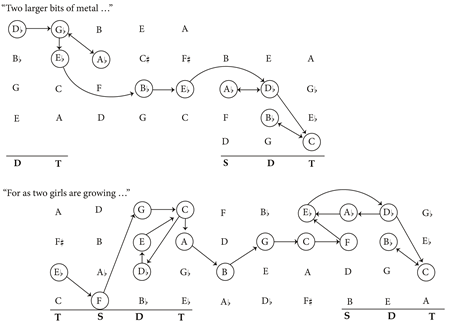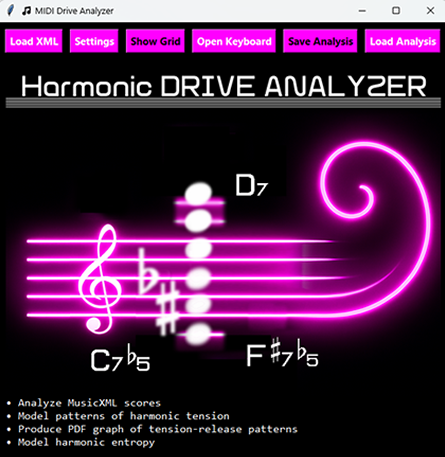 |
|||||||||||
 |
|||||||||||
ResourcesThis page offers downloads of analytical resources that you can use for your own projects. Harmonic Drive AnalyzerThe Harmonic Drive Analyzer program was developed in Python and now runs as a stand-alone download. Download as MAC/ PC App, or explore Python script on GitHub:
This method of analysis was developed to model the various simultaneous competing tonal pulls - "drives" - in post-Romantic chord-complexes. Watch a video explaining the method here. The system was developed in Desire in Chromatic Harmony, and later re-worked in an article, "The Enigma of Entropy in Extended Tonality", the latter of which went on to model entropy. |
|
|||
Functional Space GraphsThese graphs record chord progressions through the tonal space discussed in the book. The nodes on these graphs represent chords, with four minor-third relations (vertical ) representing the same tonal function (T, S or D). These functions rotate through space as we move along the line of fifhts (horizontal). The space is used in the book to capture the sense of tonal motion through chromatic substitution in various twentieth-century composers such as Richard Strauss, Charles Ives, Szymanowski, Skryabin. To draw these I use Adobe Illustrator, though blank pdfs are contained in the Zip folder for rough-work / teaching purposes. |

This functional space graph compares two stanzas of an aria from Copland's opera The Tender Land, showing a fundamental progression that drives from left-to-right along a cycle of fifths, but passes through minor-third / tritone substitutions. The second stanza is more complex and daring in its motion. |




